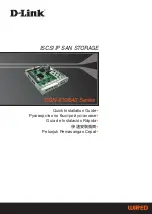UM10462
All information provided in this document is subject to legal disclaimers.
© NXP B.V. 2016. All rights reserved.
User manual
Rev. 5.5 — 21 December 2016
431 of 523
NXP Semiconductors
UM10462
Chapter 23: LPC11U3x/2x/1x I/O Handler
23.6.1.1 I/O Handler I
2
S
The I/O Handler software library provides functions to emulate an I
2
S master transmit
interface using the I/O Handler hardware block.
The emulated I
2
S interface loops over a 1 kB buffer, transmitting the datawords according
to the I
2
S protocol. Interrupts are generated every time when the first 512 bytes have been
transmitted and when the last 512 bytes have been transmitted. This allows the ARM core
to load the free portion of the buffer with new data, thereby enabling streaming audio.
Two channels with 16-bit per channel are supported. The code size of the software library
is 1 kB and code must be executed from the SRAM1 memory area reserved for the I/O
Handler code.
23.6.1.2 I/O Handler UART
The I/O Handler UART library emulates one additional full-duplex UART. The emulated
UART can be configured for 7 or 8 data bits, no parity and 1 or 2 stop bits. The baud rate
is configurable up to 115200 baud. The RXD signal is available on three I/O Handler pins
(IOH_6, IOH_16, IOH_20), while TXD and CTS are available on all 21 I/O Handler pins.
The code size of the software library is about 1.2 kB and code must be executed from the
SRAM1 memory area reserved for the I/O Handler code.
23.6.1.3 I/O Handler I
2
C
The I/O Handler I
2
C library allows to have an additional I
2
C-bus master. I
2
C read, I
2
C write
and combined I
2
C read/write are supported. Data is automatically read from and written to
user-defined buffers.
The I/O Handler I
2
C library combined with the on-chip I
2
C module allows to have two
distinct I
2
C buses, allowing to separate low-speed from high-speed devices or bridging
two I
2
C buses.
23.6.1.4 I/O Handler DMA
The I/O Handler DMA library offers DMA-like functionality. Four types of transfer are
supported: memory to memory, memory to peripheral, peripheral to memory and
peripheral to peripheral. Supported peripherals are USART, SSP0/1, ADC and GPIO.
DMA transfers can be triggered by the source/target peripheral, software, counter/timer
module CT16B1, or I/O Handler pin PIO1_6/IOH_16.


















